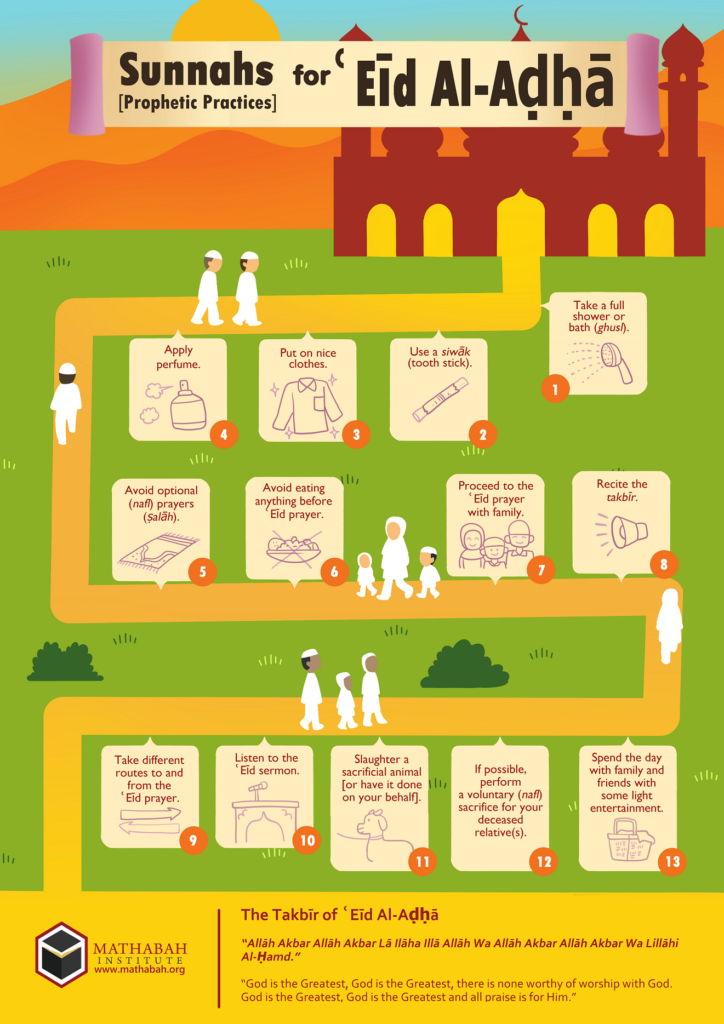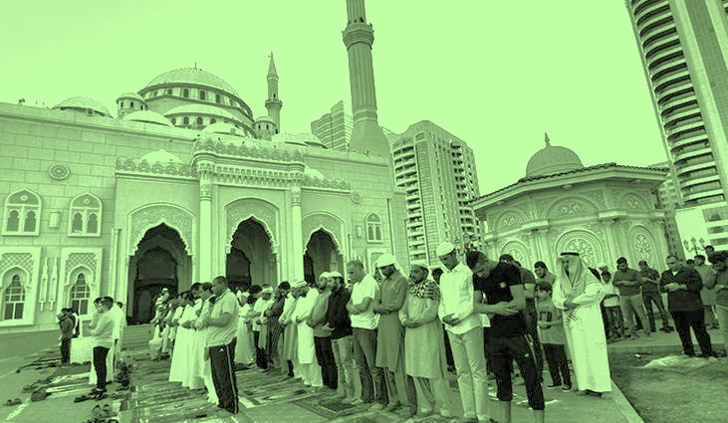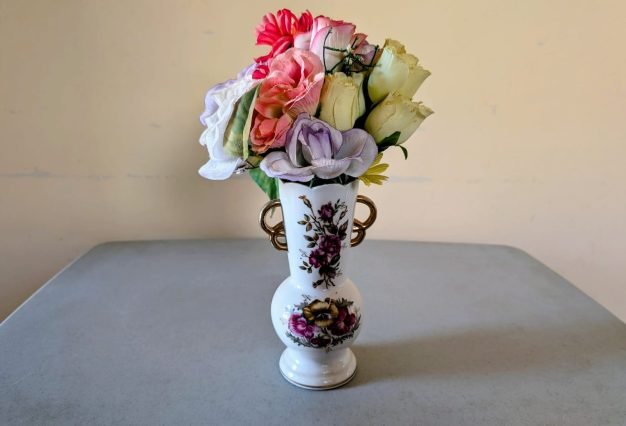By Shaykh Omar Subedar
If you intend to sacrifice an animal on the day of ʿEīd, refrain from removing any hair or clipping your nails, starting from the first day of Dhū al-Ḥijjah.
Umm Salamah (may Allāh be pleased with her) reported, “Allāh’s Messenger ﷺ said, ‘Whoever has a sacrificial animal which he plans to slaughter, then when the first moon [i.e. day] of Dhū al-Ḥijjah is announced, they should refrain from cutting any of their hair or any of their nails until they carry out the sacrifice.’” (Ṣaḥīḥ Muslim 5121)
Take a full shower or bath (ghusl).
Ibn ʿAbbās (may Allāh be pleased with him) reported, “Allāh’s Messenger ﷺ would take ghusl on the Day of Breaking Fast (yawm al-fiṭr) and on the Day of Sacrifice (yawm al-aḍ′ḥá).” (Sunan Ibn Mājah 1315)
Put on some nice clothes.
Sālim reported from his father, who reported, “ʿUmar (may Allāh be pleased with him) found a silk brocade garment [being sold] in the market. So he took it [i.e. borrowed it] and brought it to [show to] Allāh’s Messenger ﷺ and suggested, ‘Messenger of Allāh ﷺ, buy this and adorn yourself with it for ʿEīd and for delegations.’ Allāh’s Messenger ﷺ said, ‘This is the garment of those with no fortune [in the hereafter].’ ʿUmar (may Allāh be pleased with him) then continued [with his life] as long as Allāh willed. Some time later, Allāh’s Messenger ﷺ sent him a loose outer garment (jubbah) [made of] silk brocade. So he brought it to Allāh’s Messenger ﷺ and said, ‘Messenger of Allāh ﷺ, you said this was the garment of those with no fortune [in the hereafter], and then you send this to me?’ Allāh’s Messenger ﷺ said, ‘Sell it and [use the money] for whatever you need.’” (Sunan al-Nasaʾī 1561)
Avoid performing any optional (nafl) prayers (ṣalāh).
Ibn ʿAbbās (may Allāh be pleased with him) reported, “Allāh’s Messenger ﷺ went out [of his home] on the day of fiṭr and performed two rakaʿāt. He neither prayed before it nor after it, and Bilāl (may Allāh be pleased with him) was with him.” (Ṣaḥīḥ al-Bukhārī 989)
Avoid eating anything before going to the ʿEīd prayer.
Buraydah (may Allāh be pleased with him) reported, “The Prophet ﷺ would not go out [of his house] on the day of fiṭr until he ate something. He would not eat on the day of aḍ′ḥá until he prayed [the ʿEīd prayer].” (Jāmiʿ al-Tirmidhī 542)
Proceed to the ʿEīd prayer venue with your family.
Ḥafṣah bint Sīrīn reported, “We used to prevent our girls from going out on the day of ʿEīd. A woman [once] came and lodged at the Banū Khalaf fortress. I went to her. She told [me] that her sister’s husband had gone on 12 missions with the Prophet ﷺ and that her sister was with him on 6 [of those] missions. She [i.e. the sister] related, ‘We would tend to the sick and treat the wounded.’ She asked, ‘Messenger of Allāh ﷺ, is it a problem if we don’t go out [i.e. we stay at home during ʿEīd] when we don’t have any outer garments (jilbāb). He replied, ‘Her female acquaintances should clothe her with [one of] their outer garments. [The women] should see the good [of the ʿEīd gathering] and [accept] the invitation of the believers.’” Ḥafṣah reports, “When Umm ʿAṭīyah came, I went to her and asked her, ‘Have you heard anything about this?’ She replied, ‘Yes, [I swear] by my father. […] [The Prophet ﷺ said] ‘The veiled adult women and the menstruating women should come out. The menstruating women should stay aside from the prayer area. They should see the good [of the ʿEīd gathering] and [accept] the invitation of the believers.’ […] ” (Ṣaḥīḥ al-Bukhārī 980)
Take different routes to and from the ʿEīd prayer venue.
Jābir (may Allāh be pleased with him) reported, “On the day of ʿEīd, the Prophet ﷺ would take different paths [to and from the prayer venue].” (Ṣaḥīḥ al-Bukhārī 986)
Upon the completion of the prayer, listen to the sermon (khuṭbah) attentively.
Abū Saʿīd al-Khudrī (may Allāh be pleased with him) reported, “The Prophet ﷺ would go out on the days of fiṭr and aḍ′ḥá to al-Musallá [an area located by the southwest corner of the Prophet’s ﷺ Mosque]. The first thing he would begin with was the prayer (ṣalāh). He would then turn and stand facing the people while the people were sitting in their rows, and he would preach to them, give them advice and instructions […]” (Ṣaḥīḥ al-Bukhārī 956)
Proceed to the abattoir to slaughter your sacrificial animal or inform your representative to carry out the sacrifice.
Barāʾ (may Allāh be pleased with him) reported, “The Prophet ﷺ delivered a sermon to us on the Day of Sacrifice, ‘The first thing we begin with today is prayer. We then return [home] and slaughter [the sacrificial animal]. Whoever does this has correctly [followed] our practice (sunnah). And whoever slaughters [the sacrificial animal] before praying, then that [animal] is simply meat that he has given in advance to his family. It has no connection with the [rite of] sacrifice whatsoever.’ […]” (Ṣaḥīḥ al-Bukhārī 968)
Recite the following duʿāʾ when slaughtering the sacrificial animal:
إِنِّي وَجَّهْتُ وَجْهِيَ لِلَّذِي فَطَرَ السَّمَاوَاتِ وَالْأَرْضَ عَلَى مِلَّةِ اِبْرَاهِيْمَ حَنِيفًا وَمَا أَنَا مِنَ الْمُشْرِكِينَ إِنَّ صَلَاتِي وَنُسُكِي وَمَحْيَايَ وَمَمَاتِي لِلَّهِ رَبِّ الْعَالَمِينَ لَا شَرِيكَ لَهُ وَبِذالِكَ أُمِرْتُ وَأَنَا أَوَّلُ الْمُسْلِمِينَ اَللَّهُمَّ مِنْكَ وَلَكَ
innī wajjahtu wajhiya lilladhī faṭara s-samāwāti wa-l-arḍa ʿalá millati Ibrāhīmaḥanīfanwa-mā ana min al-mushrikīna. inna ṣalātī wa-nusukī wa-maḥyāya wa-mamātī lillāhi rabbi l-ʿalāmīna. lā sharīka lahu wa-bidhālika umirtu wa-ana awwalu l-muslimīna. Allāhumma minka wa-laka.
Indeed, I have turned my face toward the One who created the heavens and the earth, while being upon the religion of Ibrāhīm (peace be upon him), inclining toward truth, and I am not of those who associate others with Allāh. Indeed, my prayer, my rites of sacrifice, my living and my dying are for Allāh, Lord of the worlds. Allāh has no partners. And this I have been commanded, and I am the first [among you] of the Muslims. O Allāh, this [bounty] is from you and [is dedicated] to you.
Jābir ibn ʿAbdullāh (may Allāh be pleased with him) reported, “On the day of the sacrifice, the Prophet ﷺ slaughtered two rams that were horned, spotted and castrated. When he turned them [towards the prayer direction (qiblah)] he said, ‘Indeed, I have turned my face toward the One who created the heavens and the earth, while being upon the religion of Ibrāhīm (peace be upon him), inclining toward truth, and I am not of those who associate others with Allāh. Indeed, my prayer, my rites of sacrifice, my living and my dying are for Allāh, Lord of the worlds. Allāh has no partners. And this I have been commanded, and I am the first [among you] of the Muslims. O Allāh, this [bounty] is from you and [is dedicated] to you from Muḥammad and his nation. [I begin] with the name of Allāh, and Allāh is the Greatest.’ He then carried out the slaughter.” (Sunan Abū Dāwūd 2795)
Then say bismillāhi, Allāhu akbar and then carry out the slaughter.
Jābir ibn ʿAbdullāh (may Allāh be pleased with him) reported, “On the day of the sacrifice, the Prophet ﷺ slaughtered two rams that were horned, spotted and castrated. When he turned them [towards the prayer direction (qiblah)] he said, ‘Indeed, I have turned my face toward the One who created the heavens and the earth, while being upon the religion of Ibrāhīm (peace be upon him), inclining toward truth, and I am not of those who associate others with Allāh. Indeed, my prayer, my rites of sacrifice, my living and my dying are for Allāh, Lord of the worlds. Allāh has no partners. And this I have been commanded, and I am the first [among you] of the Muslims. O Allāh, this [bounty] is from you and [is dedicated] to you from Muḥammad and his nation. [I begin] with the name of Allāh, and Allāh is the Greatest.’ He then carried out the slaughter.” (Sunan Abū Dāwūd 2795)
You may perform a voluntary (nafl) sacrifice for your deceased relative(s) if you wish.
Ḥanash reported, “I saw ʿAlī (may Allāh be pleased with him) sacrificing two rams, so I asked him, ‘What is this?’ He explained, ‘Allāh’s Messenger ﷺ instructed me to offer a sacrifice on his behalf, so I am carrying out the sacrifice on his behalf.’” (Sunan Abū Dāwūd 2790)
Return home and spend the day socializing with family and friends with some light entertainment.
ʿĀʾishah (may Allāh be pleased with her) reported, “Abū Bakr (may Allāh be pleased with him) visited me while two of the Helper (anṣār) girls were with me, singing [the lyrics] the anṣār sang to each other on the day of [the battle of] Buʿāth. They were not singers [by profession]. Abū Bakr said, ‘The flutes of the Devil (Shayṭān) in the house of Allāh’s Messenger ﷺ?’ This happened on the day of ʿEīd. Allāh’s Messenger ﷺ said, ‘Abū Bakr, every community has a festival (ʿEīd), and this is our ʿEīd.’” (Ṣaḥīḥ al-Bukhārī 952)





